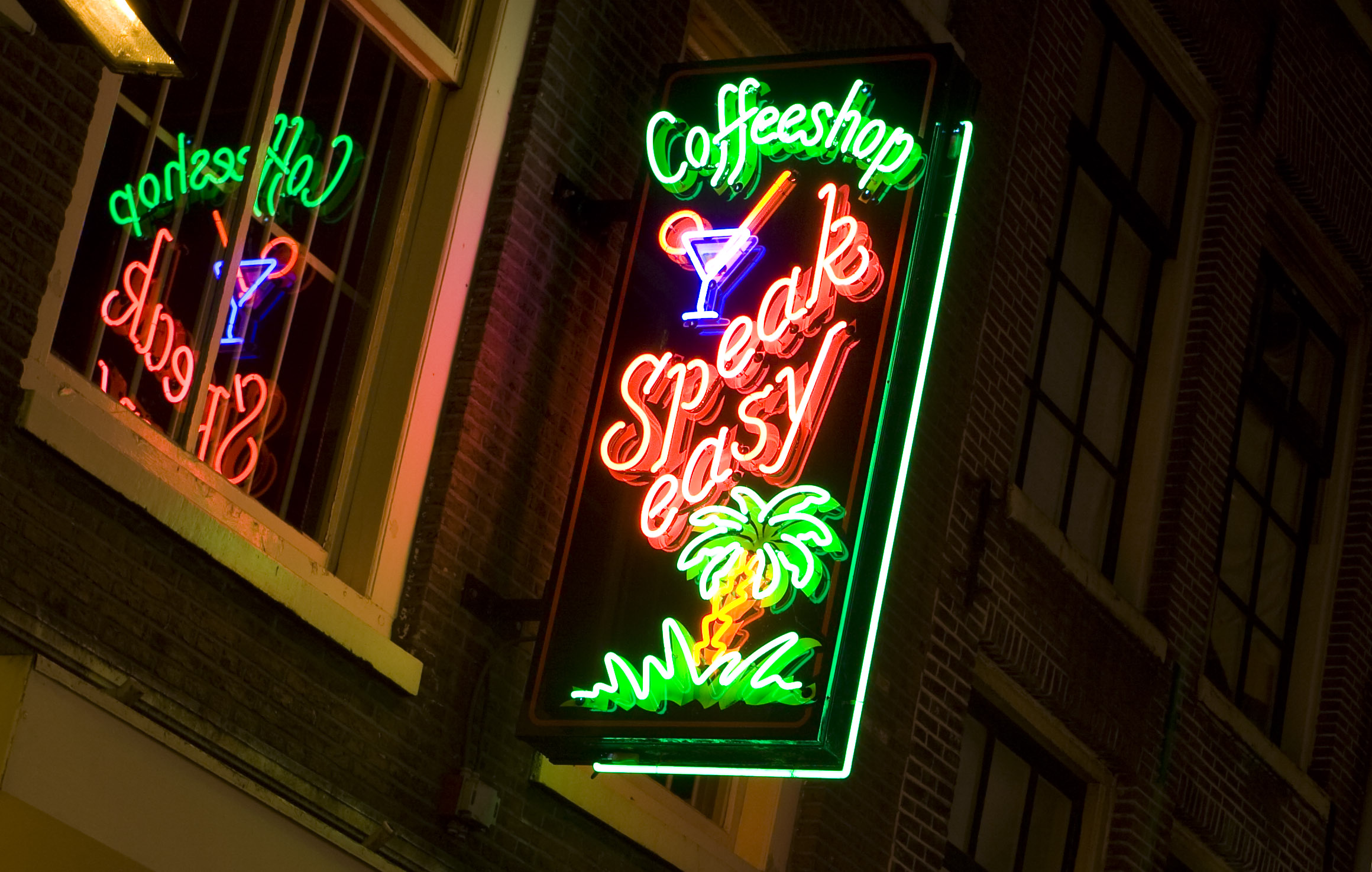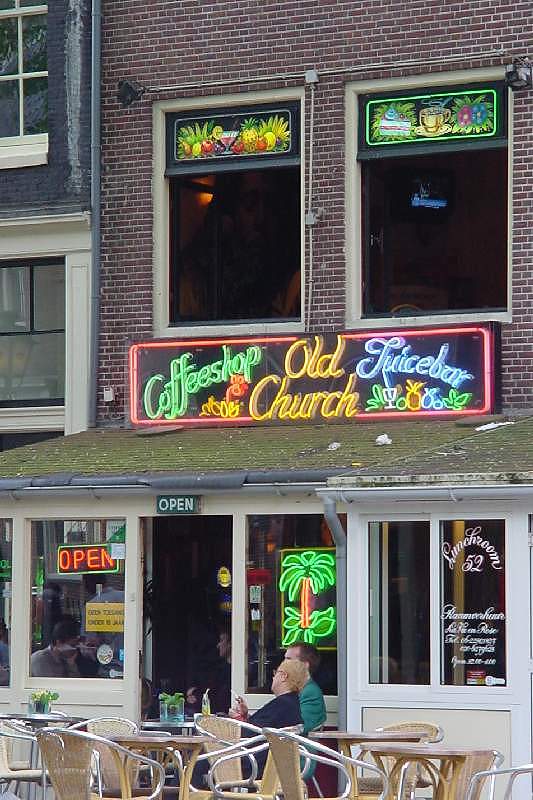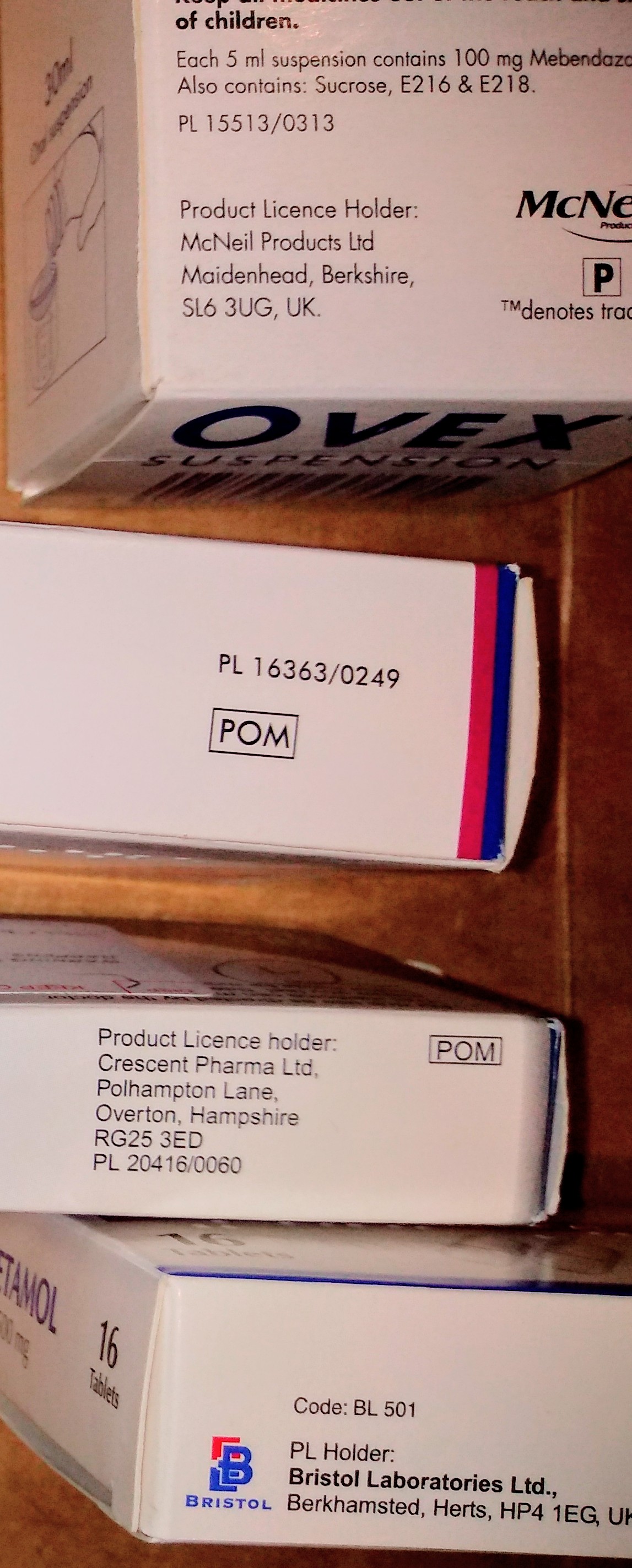|
Cannabis In The Netherlands
Cannabis in the Netherlands is illegal, but is decriminalised for personal use. Recreational consumption of the drug is tolerated, and it is available in coffeeshops. Prohibition Cannabis was first criminalised in the Netherlands in 1953, following earlier laws against its import and export in 1928. Cannabis was banned much earlier in the Dutch colony of Suriname, in the early part of the 20th century, and in Dutch Indonesia in 1927. Loosening In 1972, the Dutch government divided drugs into more- and less-dangerous categories, with cannabis being in the lesser category. Accordingly, possession of 30 grams or less was made a misdemeanor. Coffeeshops Cannabis has been available for recreational use in coffee shops since 1976. Cannabis products are only sold openly in certain local "coffeeshops" and possession of up to 5 grams for personal use is decriminalised, however, the police may still confiscate it, which often happens in car checks near the border. Other types of sales ... [...More Info...] [...Related Items...] OR: [Wikipedia] [Google] [Baidu] |
Cannabis
''Cannabis'' () is a genus of flowering plants in the family Cannabaceae. The number of species within the genus is disputed. Three species may be recognized: '' Cannabis sativa'', '' C. indica'', and '' C. ruderalis''. Alternatively, ''C. ruderalis'' may be included within ''C. sativa'', all three may be treated as subspecies of ''C. sativa'', or ''C. sativa'' may be accepted as a single undivided species. The genus is widely accepted as being indigenous to and originating from Asia. The plant is also known as hemp, although this term is often used to refer only to varieties of ''Cannabis'' cultivated for non-drug use. Cannabis has long been used for hemp fibre, hemp seeds and their oils, hemp leaves for use as vegetables and as juice, medicinal purposes, and as a recreational drug. Industrial hemp products are made from cannabis plants selected to produce an abundance of fibre. Various cannabis strains have been bred, often selectivel ... [...More Info...] [...Related Items...] OR: [Wikipedia] [Google] [Baidu] |
The Netherlands
) , anthem = ( en, "William of Nassau") , image_map = , map_caption = , subdivision_type = Sovereign state , subdivision_name = Kingdom of the Netherlands , established_title = Before independence , established_date = Spanish Netherlands , established_title2 = Act of Abjuration , established_date2 = 26 July 1581 , established_title3 = Peace of Münster , established_date3 = 30 January 1648 , established_title4 = Kingdom established , established_date4 = 16 March 1815 , established_title5 = Liberation Day , established_date5 = 5 May 1945 , established_title6 = Kingdom Charter , established_date6 = 15 December 1954 , established_title7 = Caribbean reorganisation , established_date7 = 10 October 2010 , official_languages = Dutch , languages_type = Regional languages , languages_sub = yes , languages = , languages2_type = Recognised languages , languages2_sub = yes , languages2 = , demonym = Dutch , capital = Amsterdam , largest_city = capita ... [...More Info...] [...Related Items...] OR: [Wikipedia] [Google] [Baidu] |
Drug Policy Of The Netherlands
While recreational use, possession and trade of non-medicinal drugs described by the Opium Law are all technically illegal under Dutch law, official policy since the late 20th century has been to openly tolerate all recreational use while tolerating the other two under certain circumstances. This pragmatic approach was motivated by the idea that a drug-free Dutch society is unrealistic and unattainable, and efforts would be better spent trying to minimize harm caused by recreational drug use. As a result of this ''gedoogbeleid'' (lit. "tolerance policy" or "policy of tolerance"), the Netherlands is typically seen as much more tolerant of drugs than most other countries. Legal distinctions are made in the Opium Law between drugs with a low risk of harm and/or addiction, called soft drugs, and drugs with a high risk of harm and/or addiction, called hard drugs. Soft drugs include hash, marijuana, sleeping pills and sedatives, while hard drugs include heroin, cocaine, ampheta ... [...More Info...] [...Related Items...] OR: [Wikipedia] [Google] [Baidu] |
Coffeeshop (Netherlands)
In the Netherlands, ''coffeeshops'' are establishments where the sale of cannabis for personal consumption by the public is tolerated by the local authorities. Under the drug policy of the Netherlands, the sale of cannabis products in small quantities is allowed by licensed ''coffeeshops''. The majority of these also serve drinks and food. ''Coffeeshops'' are not allowed to serve alcohol or other drugs, and risk closure if they are found to be selling soft drugs to minors, hard drugs or selling alcohol. The idea of licensing the sale of cannabis was introduced in the 1970s for the explicit purpose of keeping hard and soft drugs separated. A Dutch judge has ruled that tourists can legally be banned from entering cannabis cafes, as part of restrictions that were implemented in 2012. City councils can choose whether to implement this ban or not. This ban is implemented only by a few municipalities in the southern Netherlands. The city council in Maastricht allows tourists ... [...More Info...] [...Related Items...] OR: [Wikipedia] [Google] [Baidu] |
Dutch Surinam
Surinam ( nl, Suriname), also unofficially known as Dutch Guiana, was a Dutch plantation colony in the Guianas, bordered by the equally Dutch colony of Berbice to the west, and the French colony of Cayenne to the east. It later bordered British Guiana from 1831 to 1966. History The colonization of Suriname Surinam was a Dutch colony from 26 February 1667, when Dutch forces captured Francis Willoughby's English colony during the Second Anglo-Dutch War, until 15 December 1954, when Surinam became a constituent country of the Kingdom of the Netherlands. The status quo of Dutch sovereignty over Surinam, and English sovereignty over New Netherland, which it had conquered in 1664, was kept in the Treaty of Breda of 31 July 1667, and again confirmed in the Treaty of Westminster of 1674. After the other Dutch colonies in the Guianas, i.e., Berbice, Essequibo, Demerara, and Pomeroon, were lost to the British in 1814, the remaining colony of Surinam was often referred to a ... [...More Info...] [...Related Items...] OR: [Wikipedia] [Google] [Baidu] |
Dutch Indonesia
The Dutch East Indies, also known as the Netherlands East Indies ( nl, Nederlands(ch)-Indië; ), was a Dutch Empire, Dutch colony consisting of what is now Indonesia. It was formed from the nationalised Factory (trading post), trading posts of the Dutch East India Company, which came under the administration of the Batavian Republic, Dutch government in 1800. During the 19th century, the Dutch possessions and hegemony expanded, reaching the greatest territorial extent in the early 20th century. The Dutch East Indies was one of the most valuable colonies under European rule, and contributed to Dutch global prominence in spice and cash crop trade in the 19th to early 20th centuries. The colonial social order was based on rigid racial and social structures with a Dutch elite living separate from but linked to their native subjects. The etymology of Indonesia, term ''Indonesia'' came into use for the geographical location after 1880. In the early 20th century, local intellectuals ... [...More Info...] [...Related Items...] OR: [Wikipedia] [Google] [Baidu] |
Coffeehouse
A coffeehouse, coffee shop, or café is an establishment that primarily serves coffee of various types, notably espresso, latte, and cappuccino. Some coffeehouses may serve cold drinks, such as iced coffee and iced tea, as well as other non-caffeinated beverages. In continental Europe, cafés serve alcoholic drinks. A coffeehouse may also serve food, such as light snacks, sandwiches, muffins, fruit, or pastries. Coffeehouses range from owner-operated small businesses to large multinational corporations. Some coffeehouse chains operate on a franchise business model, with numerous branches across various countries around the world. While ''café'' may refer to a coffeehouse, the term "café" generally refers to a diner, British café (colloquially called a "caff"), " greasy spoon" (a small and inexpensive restaurant), transport café, teahouse or tea room, or other casual eating and drinking place. A coffeehouse may share some of the same characteristics of a bar or rest ... [...More Info...] [...Related Items...] OR: [Wikipedia] [Google] [Baidu] |
Cannabis Coffee Shop
In the Netherlands, ''coffeeshops'' are establishments where the sale of cannabis for personal consumption by the public is tolerated by the local authorities. Under the drug policy of the Netherlands, the sale of cannabis products in small quantities is allowed by licensed ''coffeeshops''. The majority of these also serve drinks and food. ''Coffeeshops'' are not allowed to serve alcohol or other drugs, and risk closure if they are found to be selling soft drugs to minors, hard drugs or selling alcohol. The idea of licensing the sale of cannabis was introduced in the 1970s for the explicit purpose of keeping hard and soft drugs separated. A Dutch judge has ruled that tourists can legally be banned from entering cannabis cafes, as part of restrictions that were implemented in 2012. City councils can choose whether to implement this ban or not. This ban is implemented only by a few municipalities in the southern Netherlands. The city council in Maastricht allows touris ... [...More Info...] [...Related Items...] OR: [Wikipedia] [Google] [Baidu] |
Decriminalisation
Decriminalization or decriminalisation is the reclassification in law relating to certain acts or aspects of such to the effect that they are no longer considered a crime, including the removal of criminal penalties in relation to them. This reform is sometimes applied retroactively but otherwise comes into force from either the enactment of the law or from a specified date. In some cases regulated permits or fines may still apply (for contrast, see: legalization), and associated aspects of the original criminalized act may remain or become specifically classified as crimes. The term was coined by anthropologist Jennifer James to express sex workers' movements' "goals of removing laws used to target prostitutes", although it is now commonly applied to drug policies. The reverse process is criminalization. Decriminalization reflects changing social and moral views. A society may come to the view that an act is not harmful, should no longer be criminalised, or is otherwise not a matt ... [...More Info...] [...Related Items...] OR: [Wikipedia] [Google] [Baidu] |
Prescription Drug
A prescription drug (also prescription medication or prescription medicine) is a pharmaceutical drug that legally requires a medical prescription to be dispensed. In contrast, over-the-counter drugs can be obtained without a prescription. The reason for this difference in substance control is the potential scope of misuse, from drug abuse to practicing medicine without a license and without sufficient education. Different jurisdictions have different definitions of what constitutes a prescription drug. In North America, ℞, usually printed as "Rx", is used as an abbreviation of the word "prescription". It is a contraction of the Latin word "''recipe''" (an imperative form of "recipere") meaning "take". Prescription drugs are often dispensed together with a monograph (in Europe, a Patient Information Leaflet or PIL) that gives detailed information about the drug. The use of prescription drugs has been increasing since the 1960s. Regulation Australia In Australia, the Stand ... [...More Info...] [...Related Items...] OR: [Wikipedia] [Google] [Baidu] |
Pharmacy
Pharmacy is the science and practice of discovering, producing, preparing, dispensing, reviewing and monitoring medications, aiming to ensure the safe, effective, and affordable use of medication, medicines. It is a miscellaneous science as it links health sciences with pharmaceutical sciences and natural sciences. The professional practice is becoming more clinically oriented as most of the drugs are now manufactured by pharmaceutical industries. Based on the setting, pharmacy practice is either classified as community or institutional pharmacy. Providing direct patient care in the community of institutional pharmacies is considered clinical pharmacy. The scope of pharmacy practice includes more traditional roles such as compounding and dispensing of medications. It also includes more modern services related to health care including clinical services, reviewing medications for safety and efficacy, and providing drug information. Pharmacists, therefore, are experts on drug ther ... [...More Info...] [...Related Items...] OR: [Wikipedia] [Google] [Baidu] |








